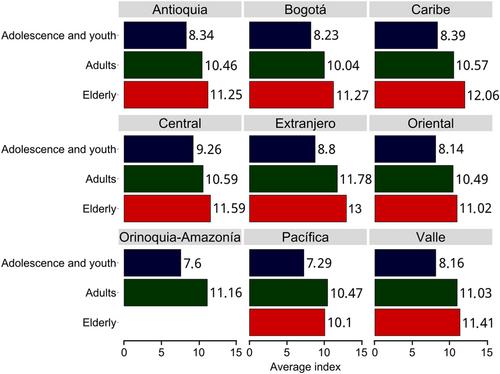Science, technology, and innovation in health for the next twenty years: A survey analysis in Colombia
Abstract
Background
Colombia is a Latin American country with a very complex social and political context that has not allowed the allocation of sufficient resources to the fields of science, technology, and innovation (STI). This is particularly worrying for the area of health since not enough resources are allocated for public health, research, or education.
Methods
The so-called “Great Survey in Health 2019” was administered online through the SurveyMonkey platform to 5298 people in different regions of the country, representing the public, private, and academic sectors. The questionnaire consisted of 46 open and closed questions, including demographic inquiries. Data analysis involved textual analytics and sentiment analysis.
Results
Overall, 56% of those surveyed were women within the adult life cycle. Most respondents had a postgraduate education. Greater participation was observed in the Oriental, Bogotá, and Antioquia regions, which also concentrate the largest number of resources for STI. Among the main recommendations derived from the results, priorities include investing in research, personalised medicine, promoting the social appropriation of knowledge, addressing mental health, regulating research through a statute, promoting undergraduate research, and establishing recertification exams to pursue excellence.
Conclusion
The results of this original study serve as a fundamental input to promote and strengthen the STI processes in life sciences and health. They serve as a guide to generate public policies and actions that guarantee better health and well-being for the Colombian population, strategically proposing a clear roadmap for the next 20 years.


 求助内容:
求助内容: 应助结果提醒方式:
应助结果提醒方式:


